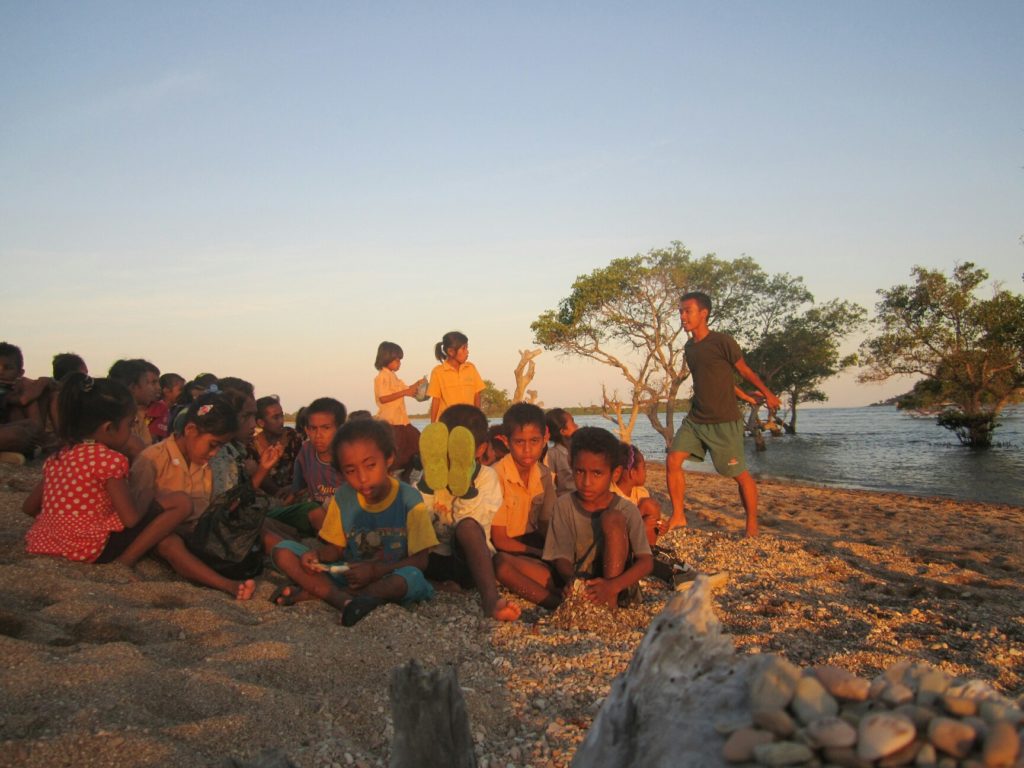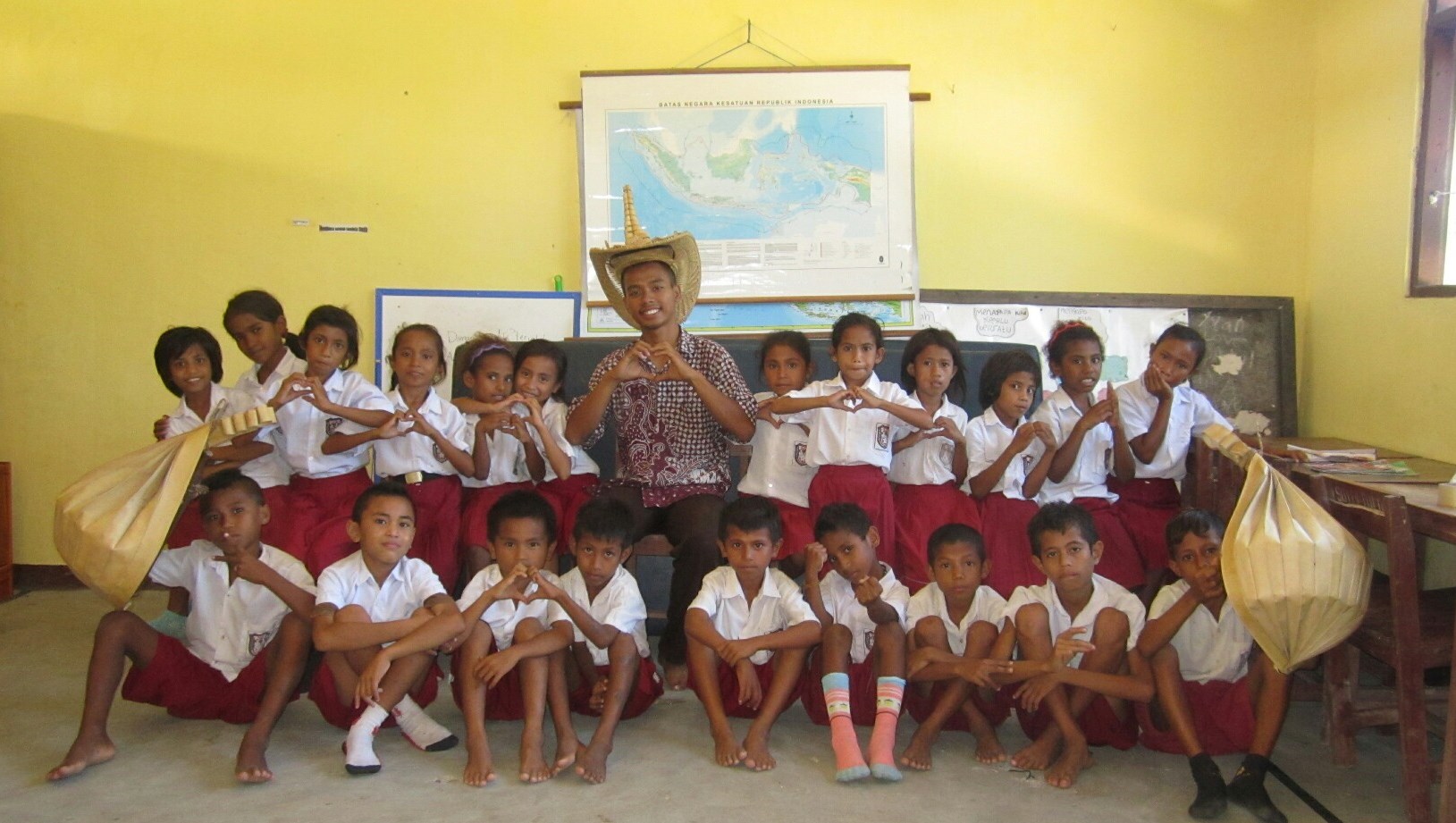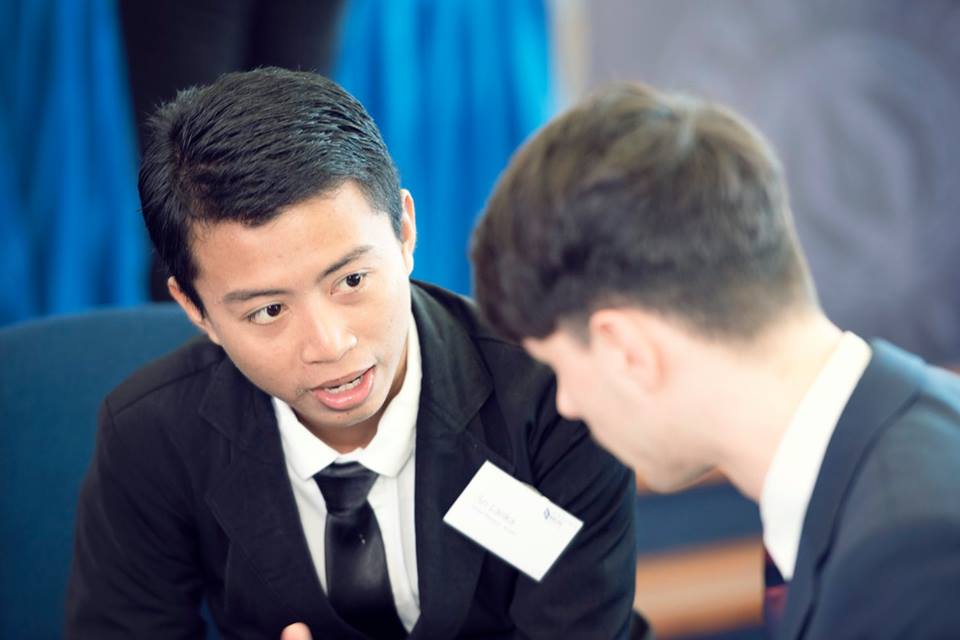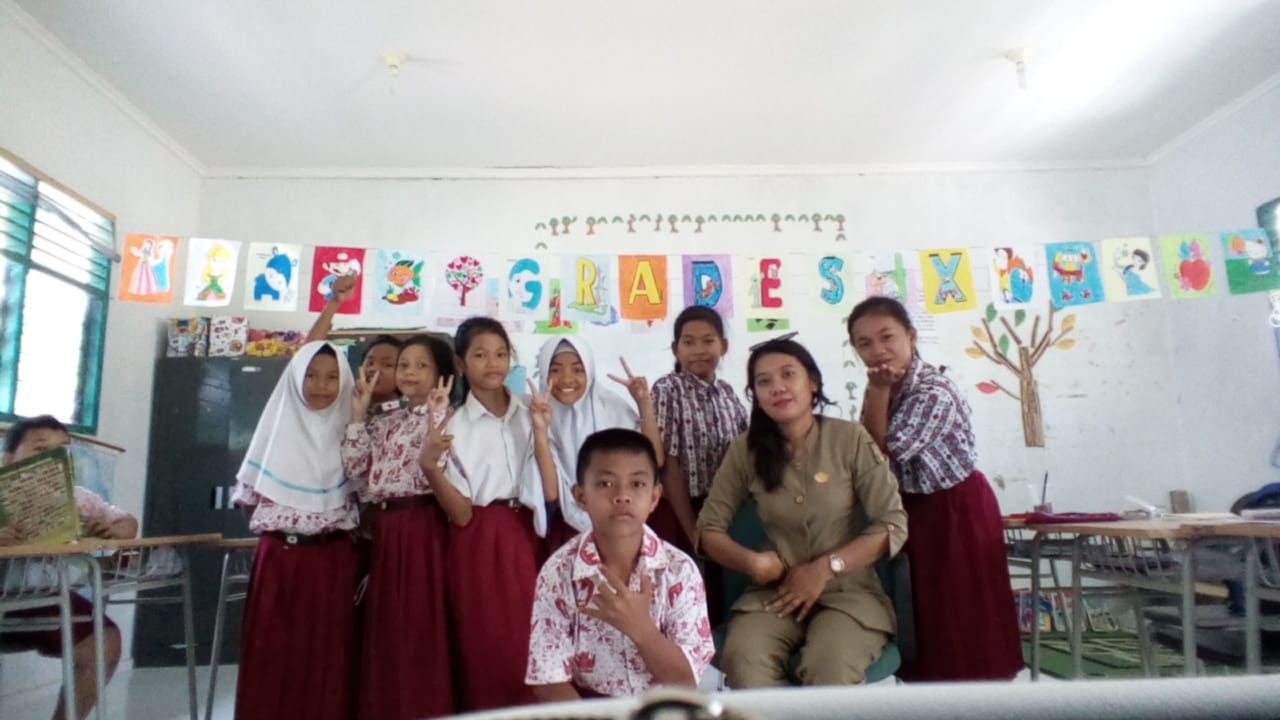Iwan Budi Santoso, a Tanoto Scholar from Universitas Gadjah Mada (UGM), has an attitude of high social awareness. Seeing how children in rural areas receive poor quality education, he devoted himself for a year as a teacher at SD Inpres Batulai, Kabupaten Rote Ndao, East Nusa Tenggara.
Iwan’s concern for the education of children arose when he was still studying at the Faculty of Psychology of UGM. The Tanoto Foundation 2010 scholarship recipient followed a khatulistiwa (equatorial) expedition as a social and cultural researcher alongside the Indonesian National Army in Kutai Barat, an Indonesian border region with Malaysia.
In this remote rural area, Iwan saw for himself how the children were so eager to learn, but there was a shortage of teachers at the school. Children just played around without the guidance and learning from the teachers. Since then, Iwan tried to step in and started teaching.
“It turns out that to be a teacher is indeed fun,” recalls Iwan. “There is a sense of satisfaction when I see children understand and be able to put into practice what I teach.”
Iwan’s desire to contribute to the Indonesian education world continues. After graduating from university in 2013, he enrolled in the Indonesian Teaching Movement and was selected to be one of the Young Teachers in the program.
In the program, Iwan received intensive training for two months on education and teaching. From this training Iwan got additional preparation for providing quality teaching learning, before plunging into the placement area on the island of Rote.
“I find that the children in the elementary school of SD Inpres Batulai are very enthusiastic in learning. Unfortunately, we still lack competent teachers to teach them, “said this young man born in Temanggung, Central Java, with cycling as a hobby.

His first task was to encourage the local teachers to utilize creative teaching learning media so that the children can enjoy more and understand easily the subject matters. Iwan also introduced outdoor learning to provoke children’s critical attitude.
“Sometimes I took the children to the beach to learn and know different types of wind. Another time, I invited them to get to know the natural phenomena of the lunar eclipse by watching it directly, “added Iwan.
Not only that, Iwan also took the initiative to introduce social media to the teachers so that they can exchange information and learn from teachers outside the region. Iwan hopes that what he did could improve the competence of teachers in providing learning in the classrooms.





